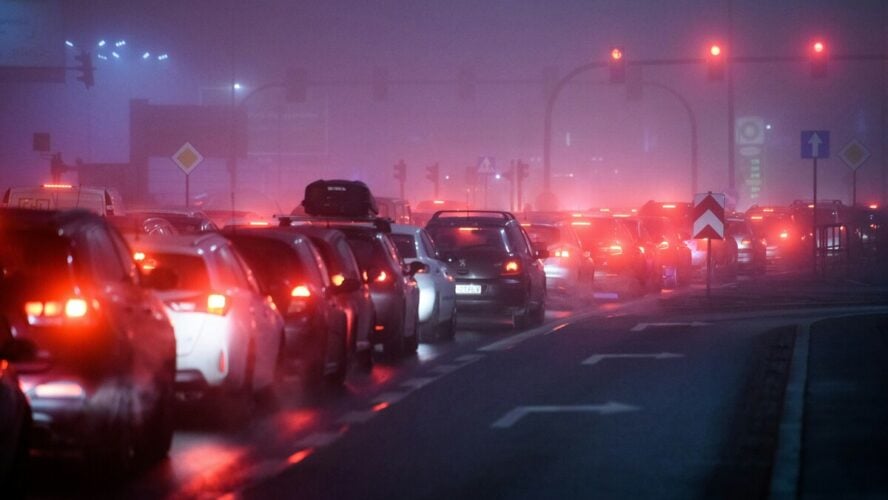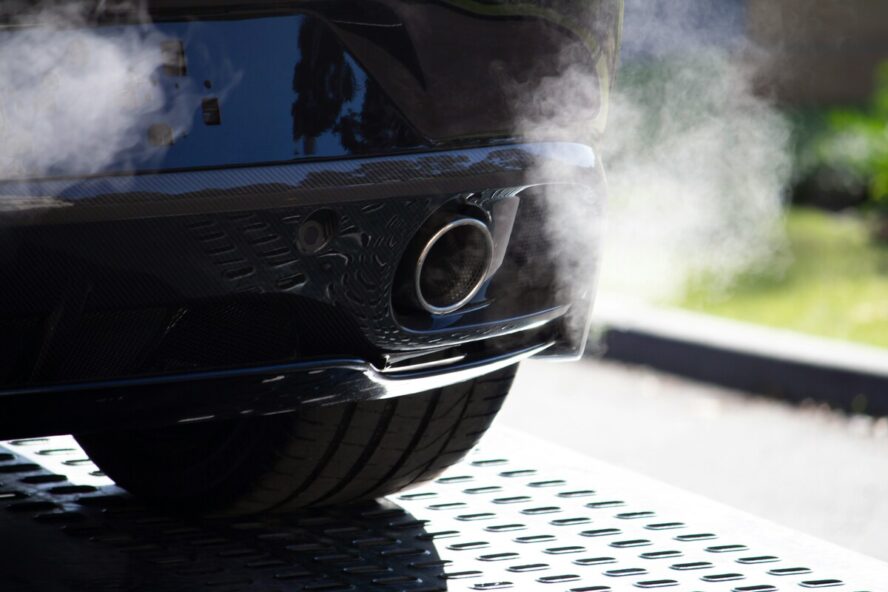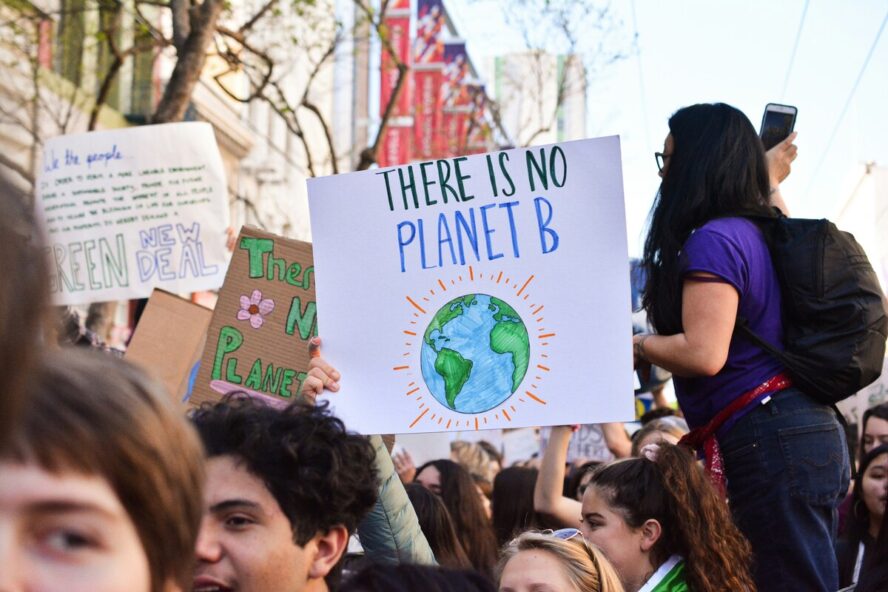
Late last month, the Environmental Protection Agency (EPA) announced a plan to end rules governing climate change contributions for motor vehicles by overturning its 2009 “Endangerment Finding.”
What Does This Mean?
Endangerment Finding scientifically established that greenhouse gas emissions are hazardous to human health. It underpins many of the federal government’s official efforts to prevent climate change, like rules regulating coal and gas-fired power plants, methane from the oil and gas industry, and car and truck exhaust.
In the new proposal, EPA argues that carbon dioxide is not “air pollution” as traditionally understood, and therefore cannot be regulated by the agency under the Clean Air Act. It relies heavily on a Department of Energy report commissioned by Energy Secretary Chris Wright, a former executive in the shale gas industry (biased, much?). This report was published just hours after the EPA announcement and heavily downplays the risk climate change poses to the country, claiming that “climate change is a challenge — not a catastrophe.1”
Understandably, researchers have come out in droves to share their criticisms. Esteemed climatologist Michael Mann condemned the report, comparing it to what one might expect “if you took a chatbot and you trained it on the top 10 fossil fuel industry-funded climate denier websites.”
The New Proposal

Currently, the EPA establishes standards for tailpipe emissions for all vehicles. If finalized, the new proposal would only maintain the rules about particulate pollution, removing any standards regarding greenhouse gas emissions.
Of course, while the scientific community calls BS, there are many who stand to gain financially from these changes. The American Petroleum Institute welcomed the move on Tuesday, calling it “a critical step toward restoring consumer choice.”
“With this proposal, the Trump EPA is proposing to end sixteen years of uncertainty for automakers and American consumers,” EPA administrator Lee Zeldin said in an agency press release2.
The release’s language slammed the establishment of the Endangerment Finding, claiming that the Obama Administration “ignored Congress’ clear intent” with regards to the Clean Air Act, “slicing and dicing the language of the statute” and engaging in “mental leaps” to show that carbon dioxide and other gas emissions contributed “some unspecified amount to climate change, which in turn creates some unspecified amount of endangerment to human health and welfare.”
Why This Is The Wrong Move for the Planet
The U.S. is the largest historical emitter of man-made climate pollution. More specifically, the transportation sector is currently the largest source of direct greenhouse gas emissions in the country, responsible for 28% of the 6,343.2 million metric tons of CO2 equivalent emitted in 20223.
According to the Intergovernmental Panel on Climate Change, emissions of greenhouse gases produced by human activities have warmed the climate by nearly 2 degrees Fahrenheit since the late 19th century4. This rise in the global average has already led to more frequent wildfires, widespread drought, and an increase in the intensity of tropical cyclones5. These also ultimately lead to food insecurity and endangerment of ecosystems.

“The world is now warming faster than at any point in recorded history,” writes the United Nations6. “Warmer temperatures over time are changing weather patterns and disrupting the usual balance of nature.” And these new severe weather patterns have had catastrophic effects for ecosystems and societies around the world.
“The scientific evidence is unequivocal: climate change is a threat to human wellbeing and the health of the planet,” writes the IPCC7. “Any further delay in concerted global action will miss the brief, rapidly closing window to secure a liveable future.”
EPA’s proposal must now undergo a public comment period, which will last through September 22. Should it be finalized, climate change regulations and policies will be severely endangered. Climate advocates have already vowed to challenge the proposed rule in court if necessary.
“As Americans reel from deadly floods and heat waves, the Trump administration is trying to argue that the emissions turbocharging these disasters are not a threat,” Christy Goldfuss, executive director of Natural Resources Defense Council, told NPR8. “It boggles the mind and endangers the nation’s safety and welfare.”
Other Climate-Related Changes Under Trump

Vehicle emission standards are not the only climate-related regulations the Trump administration has targeted. Fuel economy standards, which are set by the Department of Transportation and dictate how many miles per gallon a car can get, are also currently under review. Rather than focusing on the preventative good these standards do for the environment, the review focuses on how they drive costs up for American consumers. In the meantime, Congress has also removed fines for carmakers who fail to meet these standards.
Similarly, the country is taking steps backward when it comes to regulations in individual states. The state of California regulated vehicle emissions and pollution standards before any other state — and even before the federal government. The state led the way by introducing a rule mandating the number of zero-emission vehicles carmakers must sell. Other states have since emulated these regulations, influencing the auto market as a whole. But in May, at the Trump administration’s request, Congress revoked the EPA waiver allowing these state-set mandates.
Sources:
- https://www.theguardian.com/us-news/2025/aug/01/trump-epa-climate-change-report
- https://www.epa.gov/newsreleases/epa-releases-proposal-rescind-obama-era-endangerment-finding-regulations-paved-way
- https://www.epa.gov/ghgemissions/sources-greenhouse-gas-emissions
- https://www.climate.gov/news-features/understanding-climate/climate-change-global-temperature
- https://science.nasa.gov/climate-change/effects/
- https://www.un.org/en/climatechange/science/causes-effects-climate-change
- https://www.ipcc.ch/2022/02/28/pr-wgii-ar6/
- https://www.npr.org/2025/07/29/nx-s1-5482966/trump-climate-change-epa

